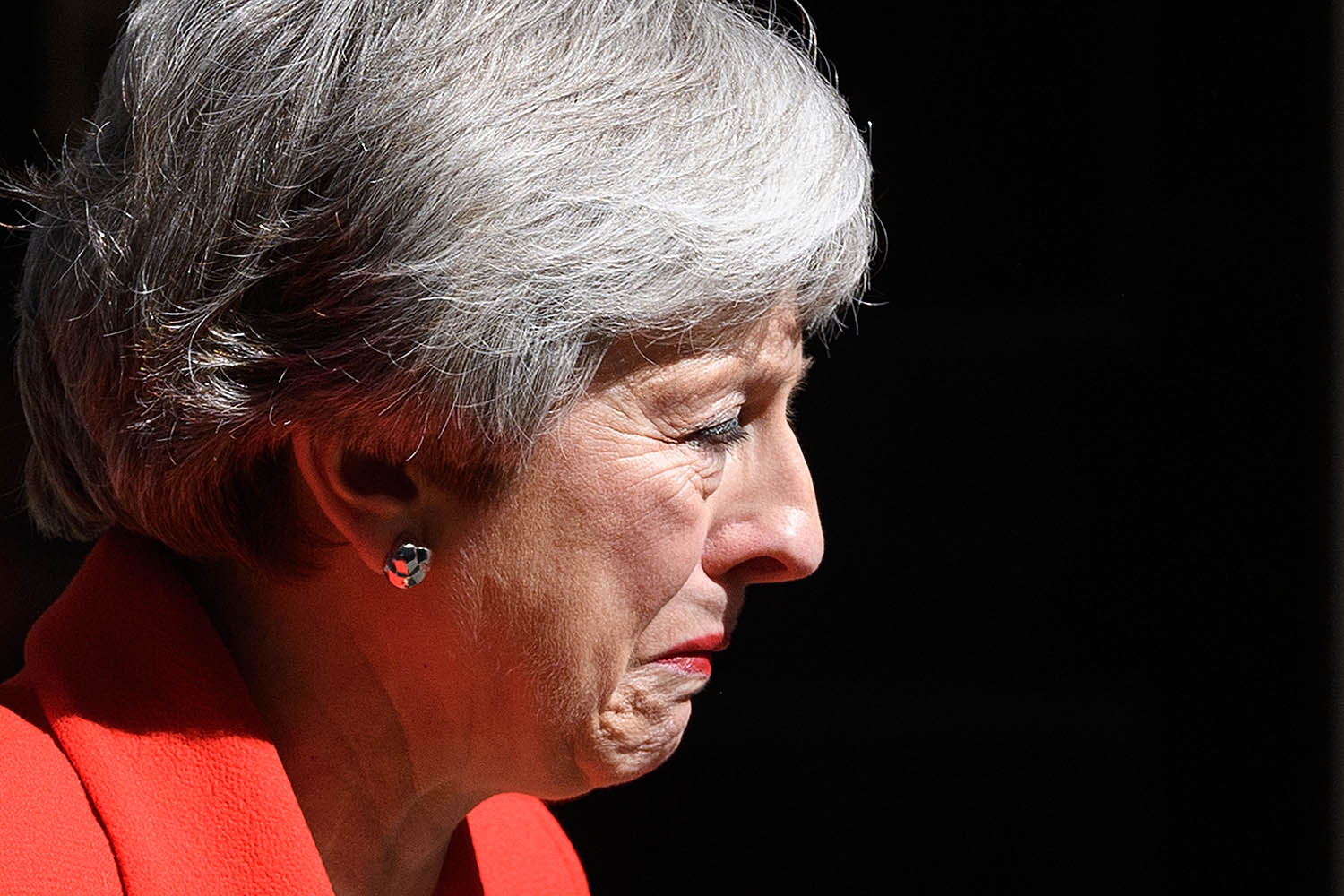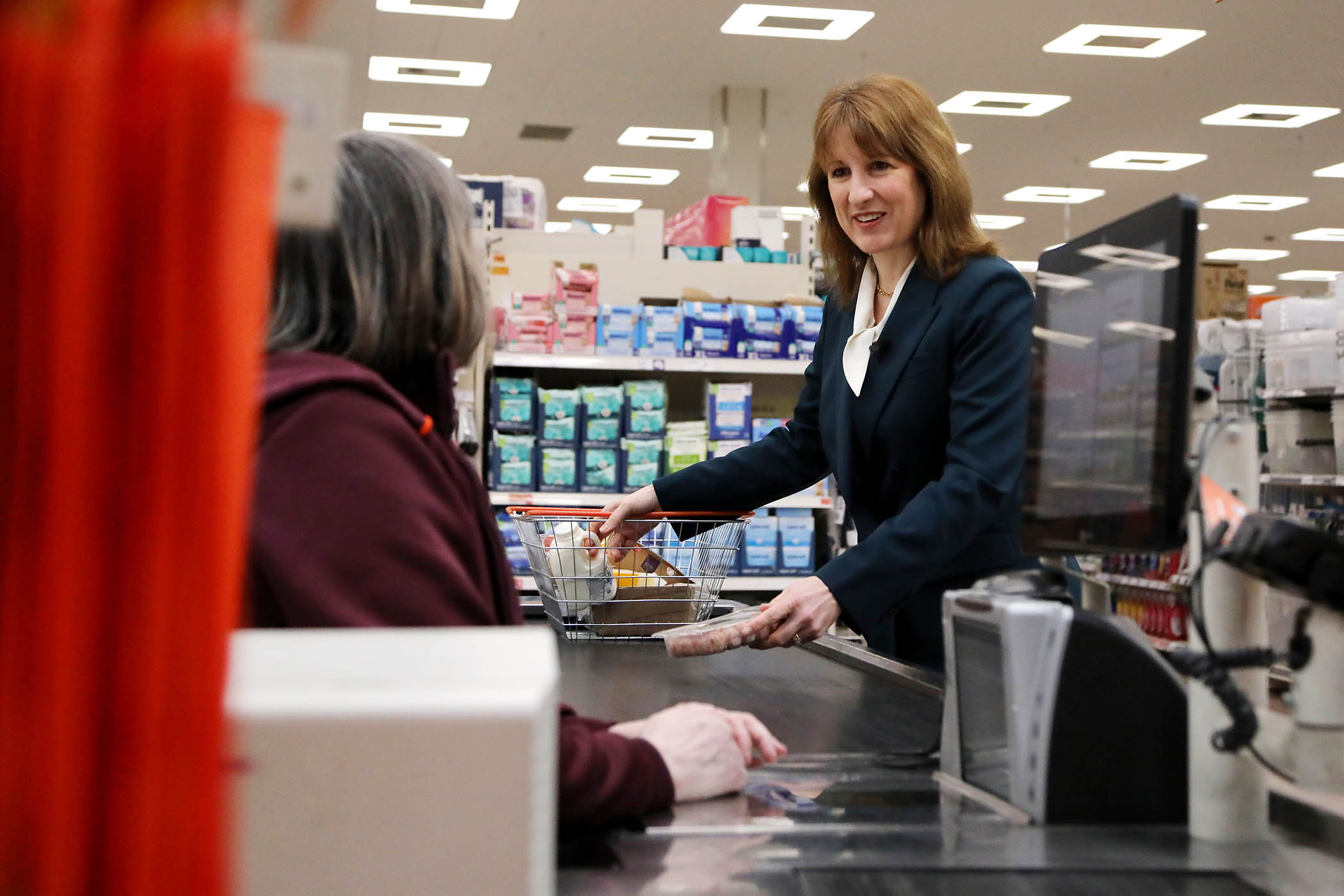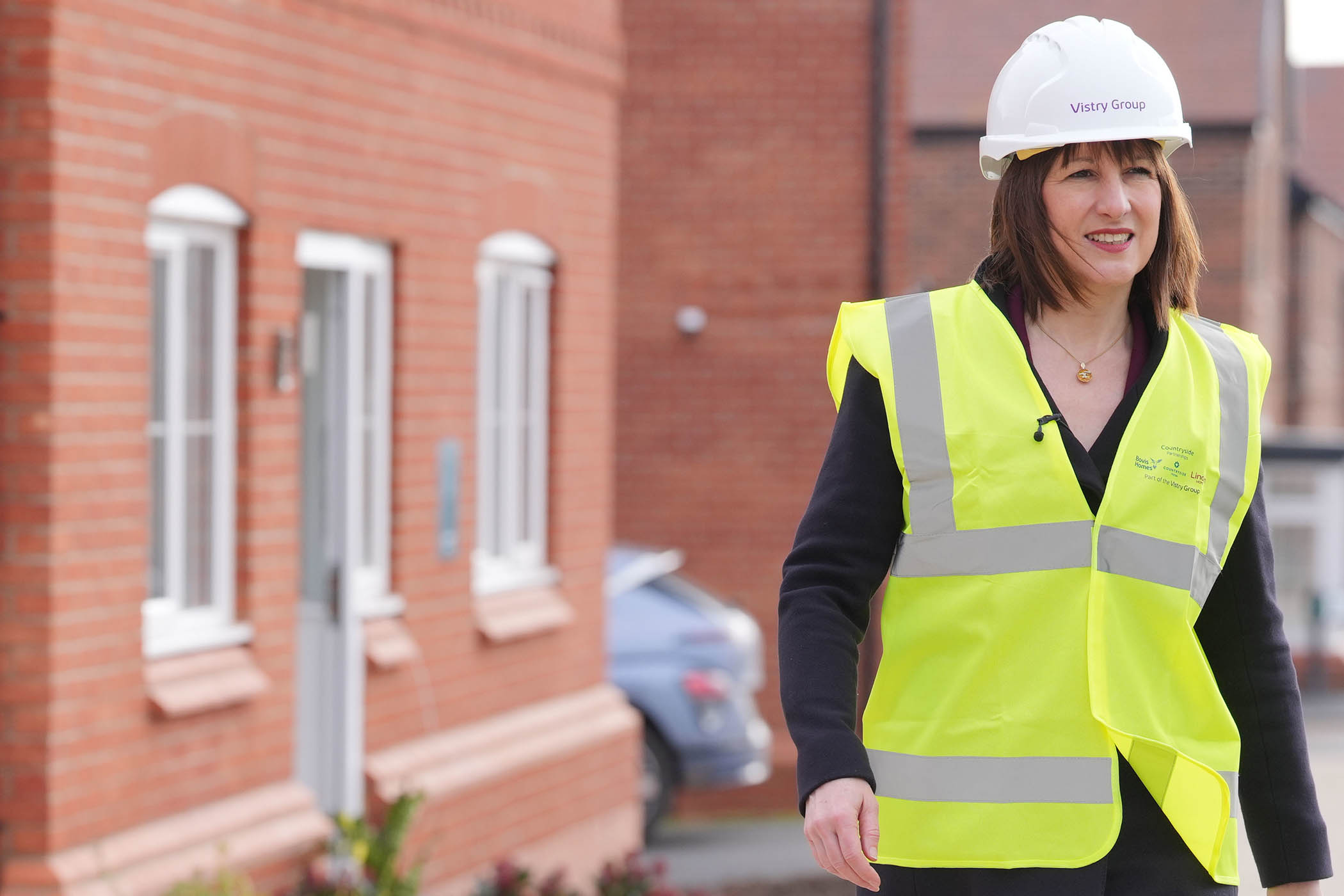When Rachel Reeves and Wes Streeting arrived at a health centre in east London to launch the NHS 10-year plan on Thursday, they were shown to a private room for a briefing with staff. As they looked around “they realised they’d been given what is normally used as a therapy room”, says one of those present. “They were cracking up.”
By the time Keir Starmer arrived, it was all smiles and hugs. But the previous day, as the tears rolled down the chancellor’s face during prime minister’s questions, unsettling the bond markets as well as her colleagues, the psychodrama in the Labour party was on full display.
The image of Reeves that was splashed all over the front pages will become as iconic as the picture of Margaret Thatcher in tears as she left No 10 or Theresa May welling up when she announced her resignation.
“It’s a photo about something that speaks to a wider truth,” says a senior Labour source. “It rests in people’s minds as a metaphor for everything else that is going on.”
Reeves insists that her emotional outpouring was related to a “personal matter”, but she is also undoubtedly facing enormous professional challenges. She was overheard telling the House of Commons speaker, Lindsay Hoyle, last week: “I’m under so much pressure.” On Friday she said it had been a “tough day in the office”, and refused to rule out tax rises in the autumn.
The chancellor’s allies detect an element of misogyny in the reaction to her tears. One cabinet minister says: “I thought some of it was really unpleasant – nobody should be revelling like that, seeing another human being so visibly upset. Frankly, Rachel has been on the receiving end of an awful lot of sexism as chancellor. It’s been a tough couple of weeks, but I think Rachel comes out of it stronger. It’s underlined that it really is a joint endeavour between her and Keir.”

Theresa May in tears after announcing her resignation as prime minister in May 2019
A friend says the market reaction to speculation that Reeves might resign or be sacked has reinforced her position at the Treasury. “You saw that the markets trust her fiscal framework. She was let down by the prime minister. I don’t think she’s a quitter, but I wouldn’t be surprised if she said to the PM: ‘If you keep on doing things like caving in to Labour backbenchers over welfare reform, you will make my job impossible.’ If she hasn’t, she should have done.”
A government adviser is less sure about the chancellor’s long-term future: “I don’t know when it will be but I can’t see how she survives in post. She’s going to have to break either her fiscal rules or her tax pledge. Can she do that, or do you need a ‘clean skin’?”
Starmer’s plans to hire his own economic adviser are seen by MPs as Downing Street “muscling up” in order to be able to “talk back” to the Treasury. “Reeves might not end up being sacked but she will end up having to arm-wrestle No 10 now,” one backbencher says.
Starmer promised to make politics “tread a little lighter” on our lives. This week has been the opposite
Starmer promised to make politics “tread a little lighter” on our lives. This week has been the opposite
Luke Tryl, More in Common
The markets may have settled but the Labour party has not. At a barbecue for party staff in the Downing Street garden on Thursday, Starmer reeled off a list of achievements from the past 12 months – but a government adviser says the mood within No 10 is “grim”.
Newsletters
Choose the newsletters you want to receive
View more
For information about how The Observer protects your data, read our Privacy Policy
One minister describes last week as an “utter car crash” and predicts that this week could be “wilder still”, with at least three rebel amendments being laid for the next stage of the welfare bill. A senior Labour source says: “It’s not fatal but Keir is badly wounded. He limps on. Nobody is going to throw him out, but he and Rachel have to do something pretty serious in terms of resetting things.”
Questions are being asked about Claire Reynolds, the prime minister’s political director, who is supposed to be the link between Starmer and his backbenchers. At one recent meeting of ministers and special advisers she suggested that the group should join together in a “prayer for growth”. One attendee left the meeting muttering that they would be “sacrificing a chicken” next. “She has been appointed to manage relations with the [parliamentary Labour party] but they all think she’s mad,” says an insider.
Those around Starmer admit he needs to work harder to rebuild relations with Labour MPs.
One member of the new intake says the welfare rebellion was “cathartic”. Conversations are going on between No 10 and senior MPs, including Jess Morden, the chair of the PLP, about how to move forward.
“A lot of people were elected for the first time on a wave of positivity, and find that governing is hard,” one cabinet minister says. “We need to bring people with us a bit more in future. We need to tell a better story about what we are doing and how we are doing it.”
Voters are losing patience. Polling by More in Common, for the New Britain Project, found that public optimism about the country has dropped sharply from 35% last year to 21% now, and 58% of people believe that “nothing works in Britain any more”. Luke Tryl, the UK director of More in Common, says: “The big problem is the perception of chaos. Starmer promised to make sure that politics ‘treads a little lighter’ on our lives. This week has been the opposite.”
A senior Labour source says it is a defining moment for the prime minister and his government: “I don’t feel too pessimistic. In some ways, you need to have this kind of seismic shock to see that you have to change. It’s a massive wake-up call.”
Photographs by Jack Hill/PA; Leon Neal/Getty




